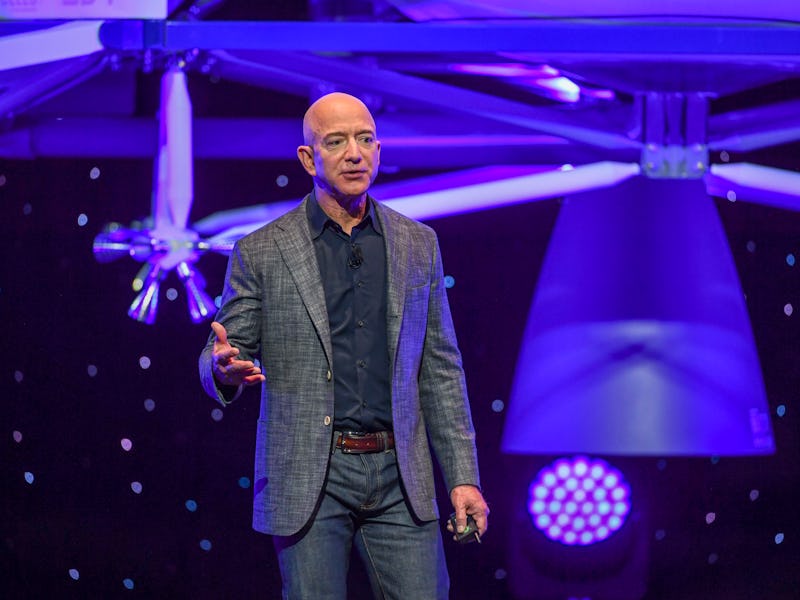Blue Origin vs. SpaceX: How Jeff Bezos fell behind Elon Musk
A rivalry is taking place in the space industry — and it could determine humanity’s future.

Jeff Bezos is about to fly into space on Blue Origin’s first crewed mission — a big milestone, but one that also highlights the gap with rival Elon Musk.
Bezos founded Blue Origin in 2000. Two years later, tech entrepreneur Elon Musk founded SpaceX. In those two decades, the gap between the two has widened: SpaceX has launched 130 missions, most of which went to orbit, while Blue Origin has launched 15 test missions to suborbital space.
Brad Stone, author of Amazon Unbound: Jeff Bezos and the Invention of a Global Empire, tells Inverse that he thinks Bezos’ plan “has taken longer than he thought.”
Want to find out more about the five major problems at Blue Origin, the major internal shift that tried to fix them, and the biggest differences between how Musk and Bezos view space? Read the full interview with Brad Stone, only in MUSK READS+.
Stone’s book reveals that the pair met twice to discuss their mutual interest, once in Seattle and once in San Francisco:
Musk later told me that he “thought it was cool that Jeff created Blue Origin and that there was someone else with similar philanthropic goals with regard to space, and a lot of resources.” He recalled their early meetings as friendly and remembered getting into a technical debate with Bezos over the merits of Blue Origin’s planned fuel mix, which used peroxide, a compound known to decompose rapidly when exposed to sunlight.
Beyond fuel, there were several key differences between the two firms:
- SpaceX aimed for profitability at a rapid pace, while Blue Origin aimed to gradually build technology to meet its goals.
- While SpaceX was determined to beat established firms to win government contracts, Blue Origin would use funding from Bezos to meet its goals.
- Blue Origin saw suborbital spaceflights for tourists as an important step toward expanding humanity’s presence in space. SpaceX was far more focused on reaching orbit.
Blue Origin’s motto summed up this philosophy: “gradatim ferociter,” or “step by step, ferociously.”
The Blue Moon lunar lander module.
The pair also have different personalities. Musk, Stone says, is much more comfortable at standing on stage and giving “undisciplined” speeches. Bezos is less comfortable, more scripted, and he’s never likely going to change.
To Stone, the rivalry started off friendly and has now morphed into an explicit competition.
“Elon I think enjoys it,” he says. “Bezos doesn't say anything about it. But you can imagine that he's kind of broiling a little bit. It'll be fun to watch these two duke it out over the next couple of decades.”
With the pair’s conflicting visions of space, it could be a race to shape humanity’s future.
TO READ THE FULL INTERVIEW WITH BRAD STONE, SUBSCRIBE TO MUSK READS+.
Here is what you will gain from subscribing to MUSK READS+:
- Three emails per week, enabling fans to go deeper into the week’s news.
- Original interviews and reporting, longform analysis, previews, and recaps of major events, including earnings calls and more.
- Community-focused extras like responses to reader mail, an upcoming event calendar, and notable anniversaries.
- An archive of previous subscriber-only content, so you can easily read back over what you might have missed.
- Promotional deals and offers.
- Supporting original, independent journalism.
MUSK READS+ is a fully independent operation. We are not Elon Musk, nor are we employed by him. Our job is to report the events we find newsworthy, giving you the inside look at the worlds of space rockets, electric cars, clean energy, and more. It means first-hand accounts of a SpaceX rocket launch, Tesla insights from third-party analysts, and more.
If you want to support us in our mission, and receive original interviews and analysis, consider contributing with a subscription.
This article was originally published on